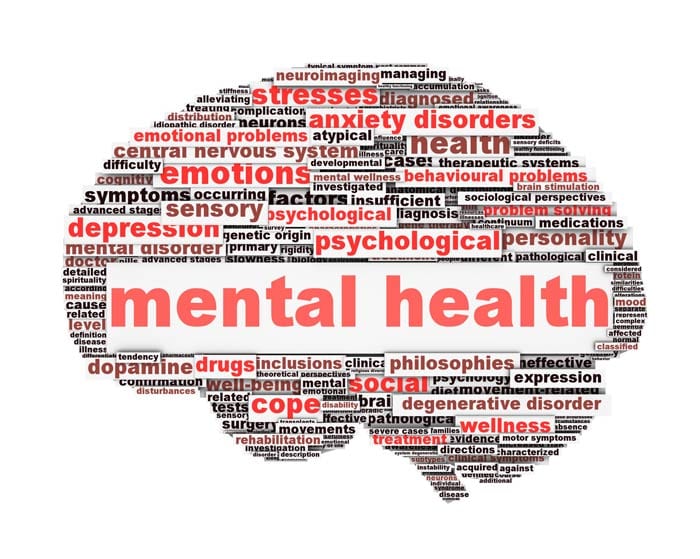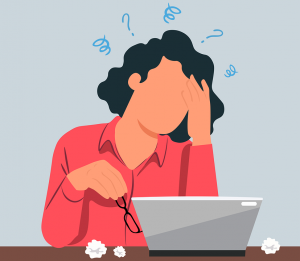The Mental Health Pandemic Inside of COVID-19
December 2, 2020
COVID- 19 has been full of challenges for people all over the world but from March on the world has seen a rapid decrease in mental health. This had led to incline in suicides, because being alone with no human contact has left people struggling with their mental health and causing people all over the world to need help.
Before, COVID mental health was a very important topic for those who struggled and for those who knew people who struggled, but help was not always easy to get. Mental health is not as supported as it should be and those who are struggling have a hard time reaching out and getting help.
According to The Lancet they say,“Even before COVID-19, mental health conditions were prevalent, accounting for about 13% of the global burden of disease. Yet, the world was woefully unprepared to deal with the mental health impact of this pandemic. Years of underinvestment in mental health, especially in low-income and middle-income countries, have left us vulnerable. It is well known that our ability to respond to, and recover from, the COVID-19 pandemic will require development of effective vaccines and treatments and strict adherence to NPIs. Less well known is that to minimise the impact of the pandemic, we must also address the substantial unmet mental health needs of whole societies, with a focus on the most vulnerable.”
A quote from The Lancet gives insight to the importance of mental health and how mental health is something that should have been focused on before, COVID and is now something that will need more funding and help to make sure our resources are improving and helping those who need it.
Mental health in teens and young adults is something that needs to be emphasized throughout our world. The pressure from school, sports, friends, parents, and so on creates a lot of stress and anxiety. The amount of time to fixate and think or create situations in one’s head during COVID has been overwhelming. Additionally, the lack of human contact was hard for several people throughout the world.
A quote from The BMJ says, “Widely reported studies modelling the effect of the covid-19 pandemic on suicide rates predicted increases ranging from 1% to 145%,6 largely reflecting variation in underlying assumptions. Particular emphasis has been given to the effect of the pandemic on children and young people.”
Furthermore, for many, going to school, work, or sports was their way of getting away from the issues at home. Domestic abuse is a very real topic and it should be talked about more often and the coronavirus only sparked it to become more dangerous and frequent. The amount of mental health issues caused because of abuse is staggering. Information from coronavirus nautil shows us the increase of domestic abuse, saying, “Before the pandemic, according to Harvard, one in three women experienced intimate partner violence. But the Washington Post reported that 54% of women surveyed by CARE in Lebanon reported increased violence and harassment during the pandemic. Meanwhile, the Post says domestic violence reports more than tripled in China’s Hubei province during lockdown in February.”
It is horrifying how tremendously the numbers have gone up and how many women and human beings have been left in such an unsafe situation.
“But governments largely failed to prepare for the way the new public health measures would create opportunities for abusers to terrorize their victims. Now, many are scrambling to offer services to those at risk,” says Amanda Taub from the New York Times. Taub also shared several scarring stories of those from around the world and how the corona virus only added on to the abuse because of the time they were spending at home and not being able to leave.
Coronavirus has unique effects on people who were once addicted to substances or are currently addicted to substances. For those reliant on drugs or substances and who are working to get help or are trying to, the virus makes this a horrible time for them. The lack of routine or daily in- person check in’s throw an addict or recovering addict off their game. For some this is the most important source of help, in person and with a group of people.
A quote from the National Care for Biotechnology Information says, “Moreover, social and economic changes caused by the pandemic, along with the traditional difficulties regarding treatment access and adherence—will certainly worsen during this period, therefore aggravate their condition. In addition, this population are potential vectors of transmission. In that sense, specific strategies for prevention and treatment must be discussed. Health care professionals dealing with SUD must be aware of the risks and challenges they will meet during and after the COVID-19 outbreak. Addiction care must be reinforced, instead of postponed, in order to avoid complications of both SUD and COVID-19 and to prevent the transmission of coronavirus.”
All of these different situations and issues going on in the world must be dealt with along with the virus. Keeping mental health a priority during this time is a huge part of things that need to be focused on as we continue this battle against COVID-19. As we learn more about the virus and with the new vaccines coming out,every country needs to continue to fight the pandemic we are facing beside the virus and continue to improve the technology and help people can receive in order to make it through these extraordinary difficult times..







